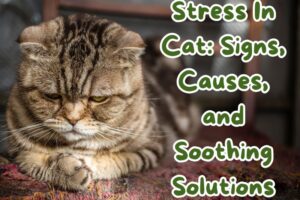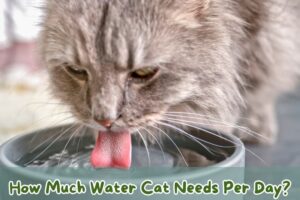As a cat owner, it’s crucial to be aware of the foods that can pose a health risk to your feline companion. Certain human foods, even those considered healthy for humans, can be highly toxic to cats and lead to serious health complications or even death. This article outlines a comprehensive list of common toxic foods for cats, along with their potential adverse effects, to help you keep your furry friend safe and healthy.
Top 5 toxic foods for cat you should concern
This article aims to equip you with the knowledge to identify and avoid common toxic foods for cats. By recognizing these hazards, you can take proactive measures to protect your feline friend’s well-being.
Chocolate
Chocolate is a beloved treat for many, but it’s essential to keep it far from your cat’s reach. Chocolate contains theobromine, a compound that is toxic to cats. Theobromine can cause a range of adverse effects in cats, including:
- Vomiting
- Diarrhea
- Seizures
- Heart problems
- Even death
The severity of the effects depends on the amount of chocolate consumed and the cat’s individual sensitivity. However, it’s important to err on the side of caution and avoid giving your cat any chocolate at all.
Onions and Garlic
Onions, garlic, and related vegetables, including chives and leeks, are commonly used in cooking, but they pose a significant risk to cats. These vegetables contain thiosulfate, which can damage red blood cells in cats, leading to anemia. Symptoms of onion or garlic toxicity in cats include:
- Lethargy
- Weakness
- Pale gums
- Increased respiratory rate
If you suspect your cat has ingested onions or garlic, seek veterinary attention immediately. Early diagnosis and treatment can prevent serious health complications.
Grapes and Raisins
Grapes and raisins may seem like harmless treats for your cat, but they can trigger kidney failure in cats, even in small quantities. The exact toxin responsible for this reaction is unknown, but it’s believed to be present in the skin, seeds, or pulp of the fruit.
Symptoms of grape or raisin toxicity in cats can appear within hours of ingestion and may include:
- Vomiting
- Diarrhea
- Loss of appetite
- Increased thirst
- Dehydration
- Lethargy
- Seizures
Raw or Undercooked Meat, Fish, and Eggs
While raw meat, fish, and eggs may provide a natural diet for cats, they can also harbor harmful bacteria that can make your cat sick. These bacteria can cause a variety of health problems, including:
- Salmonella
- E. coli
- Campylobacter
These infections can lead to symptoms such as:
- Diarrhea
- Vomiting
- Fever
- Dehydration
To protect your cat from these risks, it’s best to avoid feeding them raw or undercooked meat, fish, or eggs. Always cook these foods thoroughly to eliminate harmful bacteria.
Dairy Products
While some cats may tolerate dairy products in small amounts, many cats have difficulty digesting lactose, the sugar found in milk. This lactose intolerance can lead to digestive issues such as:
- Diarrhea
- Gas
- Abdominal cramping
What should you do if your cat unintentionally eats toxic foods?
If you suspect your cat has ingested any of the foods listed above, it’s important to act quickly and seek veterinary attention. The severity of the reaction will depend on the amount of food consumed, the cat’s individual sensitivity, and the type of food ingested.
Here are some steps you should take:
- Call your veterinarian immediately. They will be able to assess the situation and provide you with specific instructions based on your cat’s symptoms and the type of food they ingested.
- If available, bring a sample of the food your cat ingested to the vet. This will help your veterinarian determine the appropriate course of treatment.
- Monitor your cat closely for any signs of illness. Common symptoms of food poisoning in cats include vomiting, diarrhea, lethargy, loss of appetite, and abdominal pain.
- Do not induce vomiting at home without veterinary guidance. Some foods can be harmful when vomited up, and inducing vomiting may not be necessary or beneficial.
- Follow your veterinarian’s instructions carefully. They may recommend inducing vomiting, administering activated charcoal, or providing supportive care.
Remember, it’s always better to err on the side of caution and seek veterinary attention if you suspect your cat has ingested something toxic. Early diagnosis and treatment can significantly improve your cat’s chances of a full recovery.
What should you do to prevent your cat from eating those foods?
To prevent your cat from eating toxic foods, it’s important to take proactive measures to protect them from harm. Here are some tips to keep your feline friend safe:
- Store food safely: Keep all toxic foods, including chocolate, onions, garlic, grapes, raisins, raw or undercooked meat, fish, and eggs, out of your cat’s reach. Use high cabinets, lockable containers, or pet-proof storage bags to prevent them from accessing these items.
- Supervise your cat while eating: Avoid leaving food unattended, especially when eating human meals. Keep your cat off the table or countertops while eating. If you must feed your cat table scraps, choose safe options like cooked chicken or fish.
- Avoid sharing treats: Never give your cat human treats that contain toxic ingredients. Stick to commercial cat treats specifically formulated for their nutritional needs.
- Clean up spills promptly: Wipe up spills of toxic substances immediately to prevent your cat from licking them up.
- Educate family members and guests: Inform all family members and guests about the toxic foods for cats and emphasize the importance of keeping them out of your cat’s reach.
- Consider using pet-proofing products: Install childproof locks on cabinets and doors to further deter your cat from accessing potentially harmful areas.
- Regularly check your cat for signs of illness: Monitor your cat’s behavior and appetite for any changes that could indicate they have ingested something toxic. Early detection and intervention are crucial for a successful recovery.
By implementing these preventive measures, you can significantly reduce the risk of your cat accidentally consuming toxic foods and safeguard their health and well-being.




